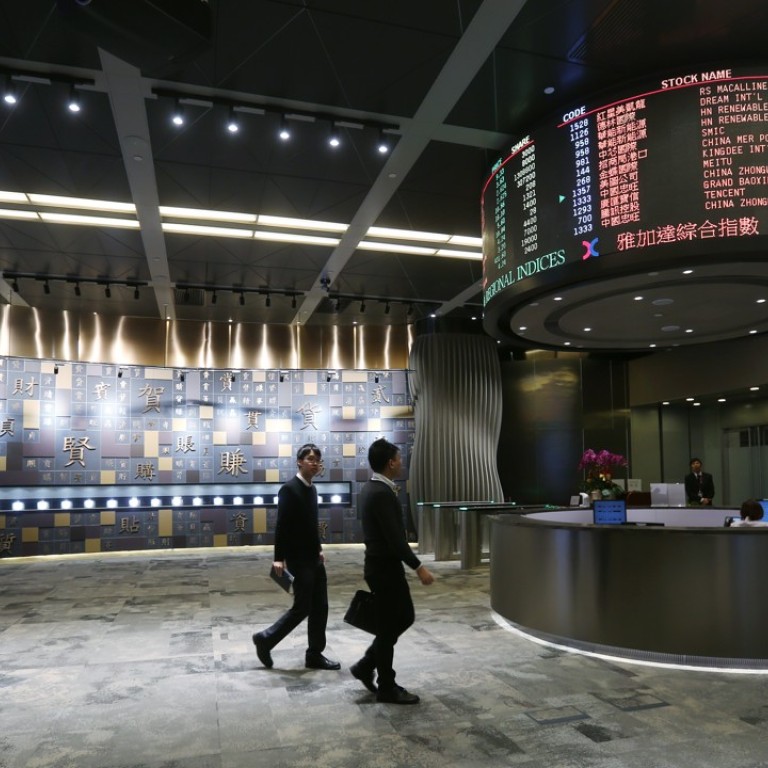
Ahead of expected Hong Kong IPO bonanza, government reveals bigger stake in HKEX
The Hong Kong government has increased its shareholding in Hong Kong Exchanges and Clearing to 6 per cent via the Exchange Fund, the first disclosure of an increased holding in more than a decade, and just one month before an expected IPO by smartphone maker Xiaomi.
The increased holding came by way of the government opting to receive shares instead of cash dividends for its 5.88 per cent holding “over the years” and does “not involve any active [share buying] operations”, according to a Hong Kong Monetary Authority spokeswoman. The voluntary disclosure of the updated shareholding is the first in more than a decade.
The HKEX provides shareholders with the option of receiving dividends in either cash or shares.
Exchange data showed the market value of the shares at HK$252.97 apiece, equal to 97 per cent of the average closing price in the five trading from May 9 to 15.
The government hasn’t made an open market purchase in HKEX since September 2007, when it increased its stake from 4.5 per cent to 5.88 per cent at a cost of HK$2.4 billion (US$356.81 million), at an average purchase price of HK$155.40 per share.
“This is a modest and limited increase in shareholding as a result of scrip dividend election under the scrip dividend scheme in relation to the final dividend for the year ended 31 December 2017,” the HKMA which oversees the Exchange Fund, said in a statement on Tuesday.
“The shareholding in HKEX is a strategic use of the Exchange Fund by the government to enable the government to contribute, over the longer term, to HKEX’s development, particularly in strategic partnerships and linkages with other institutions in the region,” the HKMA said.
The government has long ranked as the largest single shareholder of the exchange operator. The Hong Kong stock market is the third largest in Asia by market capitalisation, trailing Tokyo and Shanghai.
Hong Kong law prohibits any single entity from holding more than 5 per cent of HKEX, unless an exemption is granted from the Financial Secretary.
HKEX closed Wednesday’s trade at HK$258.60, up 0.23 per cent for the session.
A government spokeswoman said consideration is given as to how best to exercise its rights as a shareholder while also balancing policy objectives.
“We do not comment on how the government exercises its shareholders’ rights such as electing scrip dividend or cash dividend from time to time,” the government spokeswoman said.
She said the choice to receive scrip dividend “allows the government to contribute as any other shareholder to the future of HKEX, taking into account both its important role in the maintenance and development of Hong Kong as an international financial centre and the government’s responsibilities in these areas. It has no implications on the governance or regulation of HKEX.”
The spokeswoman declined to comment whether the government would continue to receive shares instead of cash dividends in future.
Christopher Cheung Wah-fung, a lawmaker representing the financial services sector, believes the move shows the government’s commitment to the development of the local exchange.
“The modest increase is more a symbolic move. This shows the government is very supportive to HKEX listing reform in April to attract technology and biotech companies. The government would also support the HKEX to fight for fundraising opportunities arising from the Belt and Road projects and Greater Bay Area projects,” Cheung said.
Gary Cheung, chairman of Hong Kong Securities Association, said as the single largest shareholder, the government already has effective control over HKEX and does not need to increase its stake.
“The government can appoint six directors at the exchange while it also approves the appointment of the chairman and chief executive. The government is also the single largest shareholder at the exchange already. It has enough control at the exchange already,” he said.

